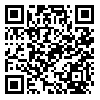Volume 12, Issue 4 (2-2021)
2021, 12(4): 23-31 |
Back to browse issues page
Clinical trials code: IRCT2017080735540N1
Download citation:
BibTeX | RIS | EndNote | Medlars | ProCite | Reference Manager | RefWorks
Send citation to:



BibTeX | RIS | EndNote | Medlars | ProCite | Reference Manager | RefWorks
Send citation to:
Tork Zahrani S, Karamollahi Z, Cheherh R, Akbar Zadeh A. The Effect of Peer Support on the Breastfeeding Continue During the First 2 Years of Infant Life Among Primiparous Women: Randomized Clinical Trial. North Khorasan University of Medical Sciences 2021; 12 (4) :23-31
URL: http://journal.nkums.ac.ir/article-1-2211-en.html
URL: http://journal.nkums.ac.ir/article-1-2211-en.html
1- Department of Midwifery, School of Nursing, Shahid Beheshti University of Medical Sciences, Tehran, Iran
2- Department of Midwifery, School of Nursing, Ilam University of Medical Sciences, Ilam, Iran ,mohamad20101@gmail.com
3- Department of Midwifery PhD of reproductive health,, School of Nursing, Ilam University of Medical Sciences, Ilam, Iran
4- Department of Basic Sciences, School of Rehabilitation, Shahid Beheshti University of Medical Sciences, Tehran, Iran
2- Department of Midwifery, School of Nursing, Ilam University of Medical Sciences, Ilam, Iran ,
3- Department of Midwifery PhD of reproductive health,, School of Nursing, Ilam University of Medical Sciences, Ilam, Iran
4- Department of Basic Sciences, School of Rehabilitation, Shahid Beheshti University of Medical Sciences, Tehran, Iran
Abstract: (3663 Views)
Introduction: Continued breastfeeding during the first 2 years of infant life reduces chronic illness and mortality in children and adults, but most mothers discontinue breastfeeding. Several strategies to increase the duration of breast feeding have been used. Strategy tested vary in timing (antenatal or postnatal), is lactation consultant or peer support program. Thus, the current study has been performed to investigate the effect of peer support program on the prolanged breastfeeding pattern and duration.
Methods: In this randomized clinical study, 240primiparous women were participated. Control group included the routine trainings and intervention group program included the routine trainings plus the support from the 30 peer support during the 6 months after delivery. Feeding pattern and duration were evaluated by the end of The1, 2, 3, 6, 12 and 24 months after birth. Data were collected by questionnaire and were analyzed with chi- square, fisher and t-test tests.
Results: Exclusive breast feeding rates was significantly higher in intervention group than control in the first, second, third and six months postpartum (P = 0.001). significantly more mothers in the intervention group than The control group continued to breast feed at 12 and 24 months after birth (% 89.9, 82 v 52.3 , 27% P = 0.001).
Conclusions: The results of this study indicated the peer support intervention was succeed in improving exclusive breastfeeding rate and duration.
Methods: In this randomized clinical study, 240primiparous women were participated. Control group included the routine trainings and intervention group program included the routine trainings plus the support from the 30 peer support during the 6 months after delivery. Feeding pattern and duration were evaluated by the end of The1, 2, 3, 6, 12 and 24 months after birth. Data were collected by questionnaire and were analyzed with chi- square, fisher and t-test tests.
Results: Exclusive breast feeding rates was significantly higher in intervention group than control in the first, second, third and six months postpartum (P = 0.001). significantly more mothers in the intervention group than The control group continued to breast feed at 12 and 24 months after birth (% 89.9, 82 v 52.3 , 27% P = 0.001).
Conclusions: The results of this study indicated the peer support intervention was succeed in improving exclusive breastfeeding rate and duration.
Type of Study: Orginal Research |
Subject:
Basic Sciences
Received: 2020/08/31 | Accepted: 2020/11/17 | Published: 2021/02/28
Received: 2020/08/31 | Accepted: 2020/11/17 | Published: 2021/02/28
Send email to the article author
| Rights and permissions | |
 |
This work is licensed under a Creative Commons Attribution-NonCommercial 4.0 International License. |






